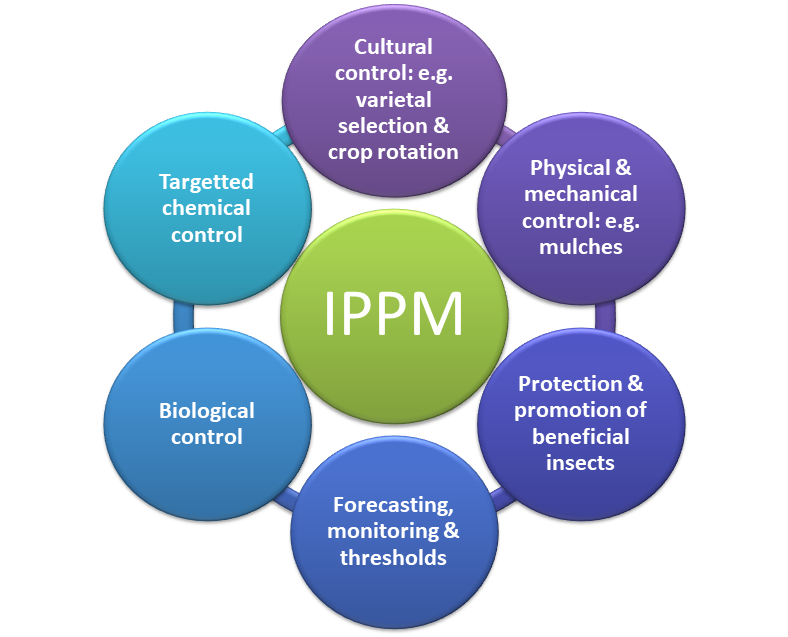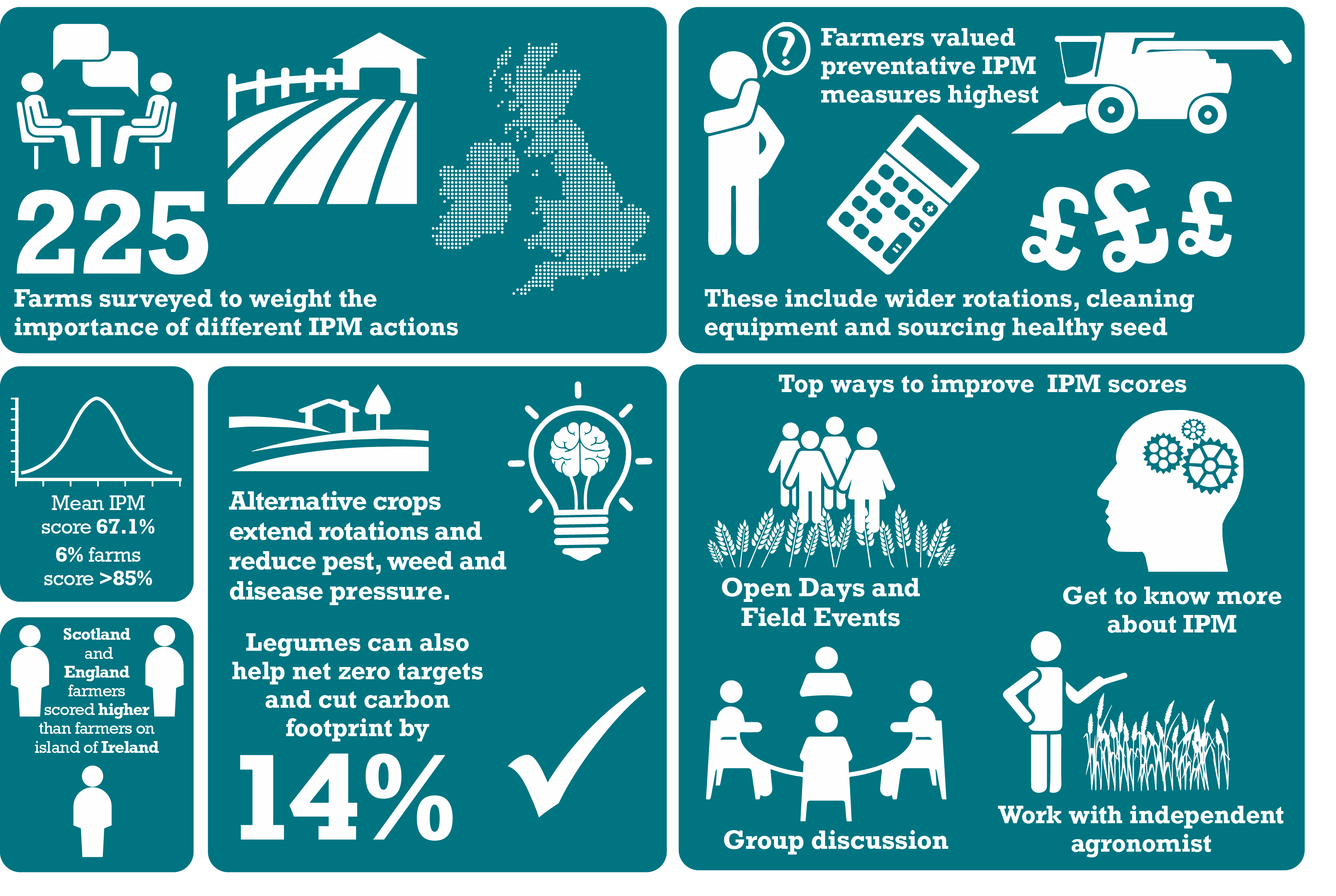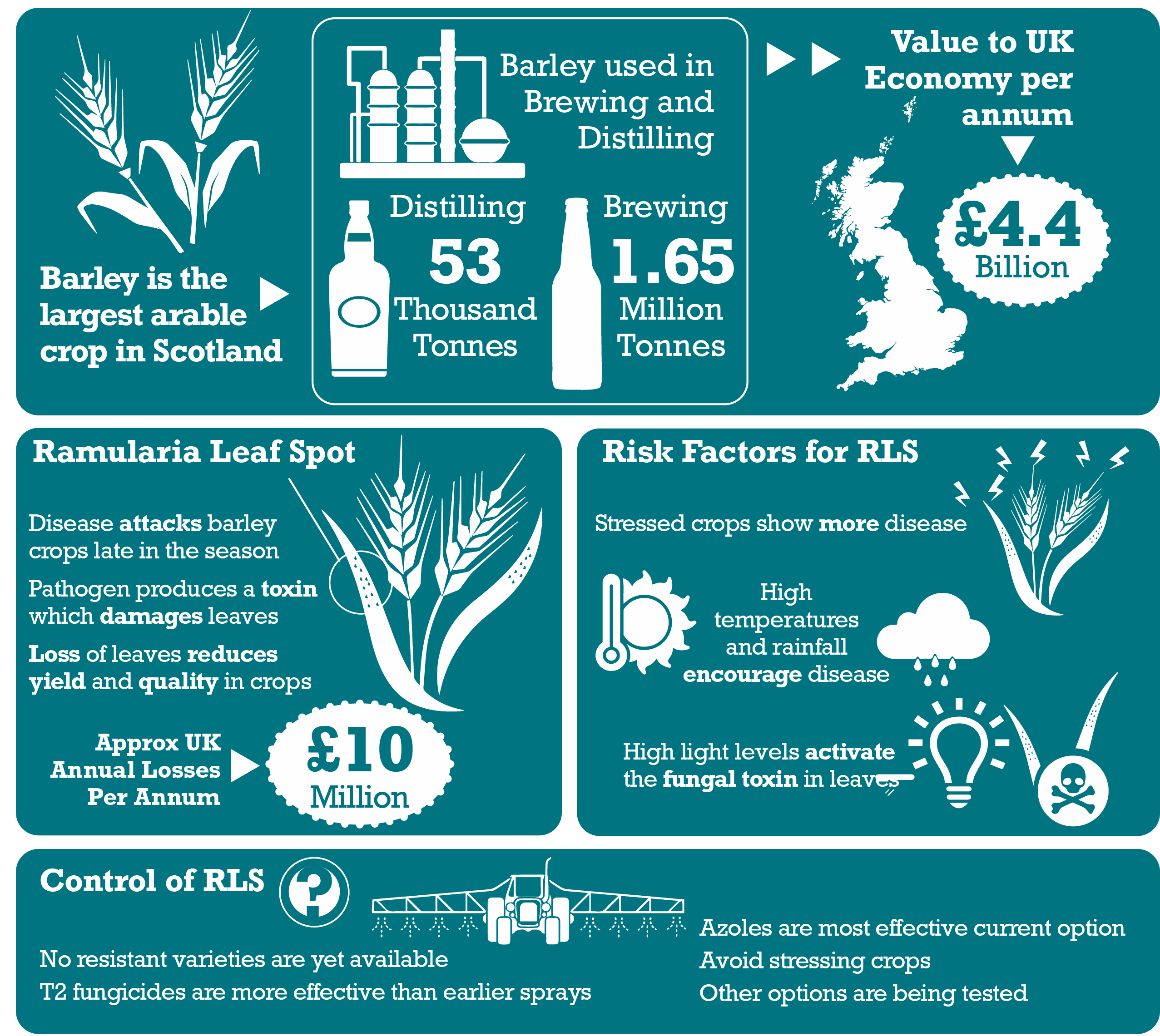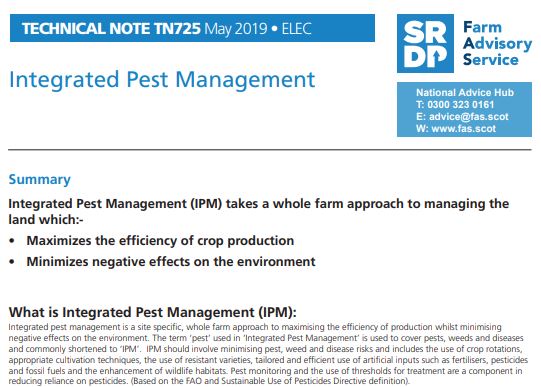Integrated Pest Management
Integrated Pest Management (IPM) combines a range of tools to more efficiently target the application of plant protection products thereby reducing the risk of pesticide resistance. Completing an IPM plan can help farmers comply with their legal requirement to take reasonable precaution to reduce risks to human health, the environment and biodiversity when using pesticides.
Integrated Pest and Pollinator Management (IPPM) builds on the IPM approach to include the protection and promotion of pollinating insects.
Beneficial insects and the services they provide to agriculture play an important role in IPPM. Promoting diversity of high-quality natural habitats such as well managed field margins, buffer strips, and hedgerows can help enhance natural predators and insect pollinators. Increasing the diversity and abundance of natural predators can keep pest populations at bay reducing the need for insecticide application. With some pollinating insects (e.g. hoverflies and parasitic wasps) having predatory larvae, promoting pollinators can further enhance natural pest control and, moreover, will increase yields in insect-pollinated crops.
Insecticides can be non-discriminatory harming beneficial predators in addition to pests. Using pest thresholds to optimise the timing and rate of application and following the cross compliance rules to protect semi-natural habitats from spray drifts will help to protect beneficial insects.
An Integrated Pest Management plan can be one of two plans required for the Whole Farm Plan from 2025 onwards. More information on the Whole Farm Plan can be found on our Preparing for the Future page, or the Scottish Government website.

The effects of Integrated Pest Management (IPM) and how to improve your score (Arable Scotland)


Useful Information
In this episode of CropCast, Tiffany Mactaggart is joined by Dr Henry Creissan an applied plant pathologist at SRUC and Professor Adrian Newton, a cereal pathologist/ Agroecologist at the James Hutton Institute, to discuss their work, which is looking at the impact of reduced tillage on integrated pest management (IPM) and how farmers can practically incorporate IPM into their own businesses. Read more >>
Sign up to the FAS newsletter
Receive updates on news, events and publications from Scotland’s Farm Advisory Service






